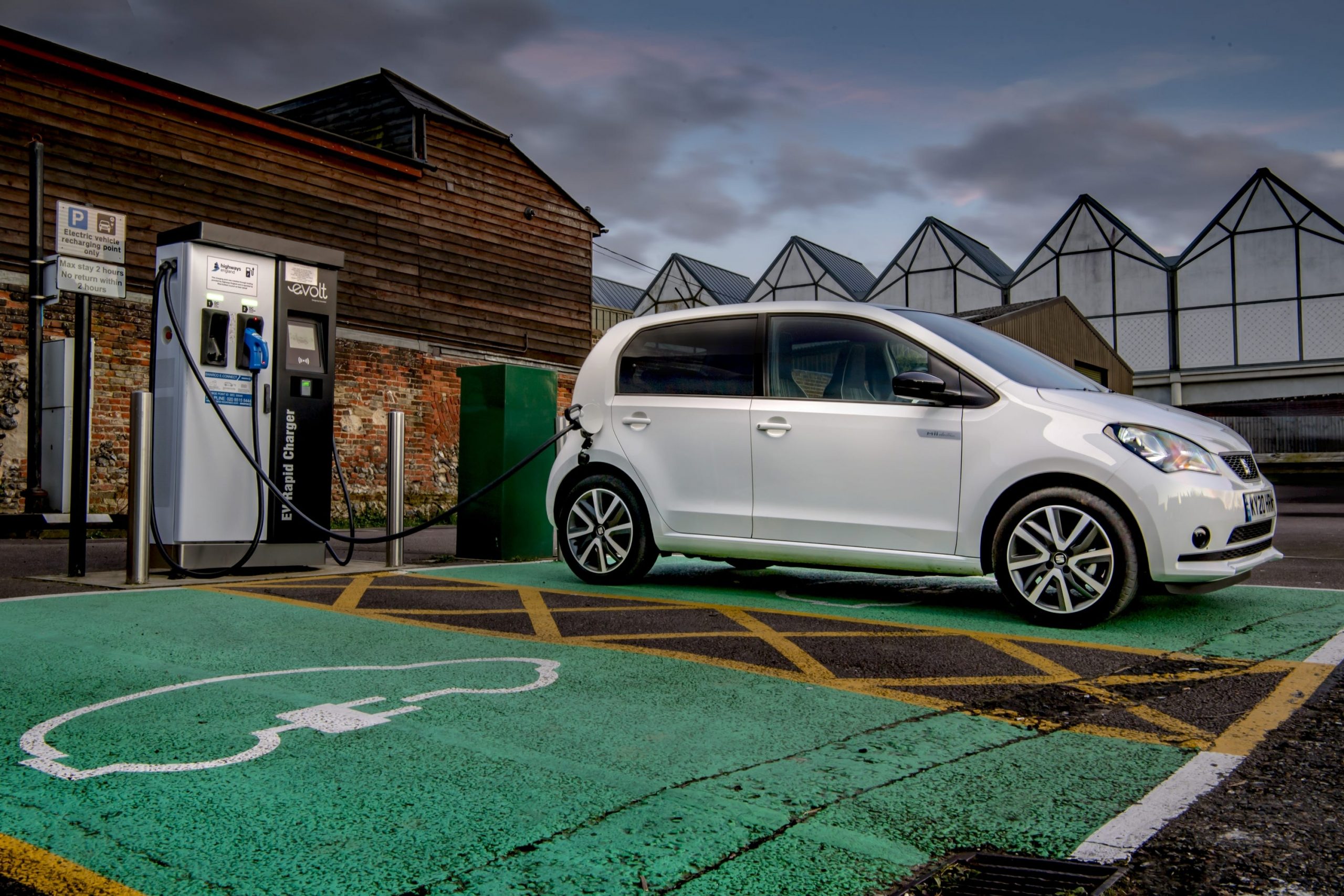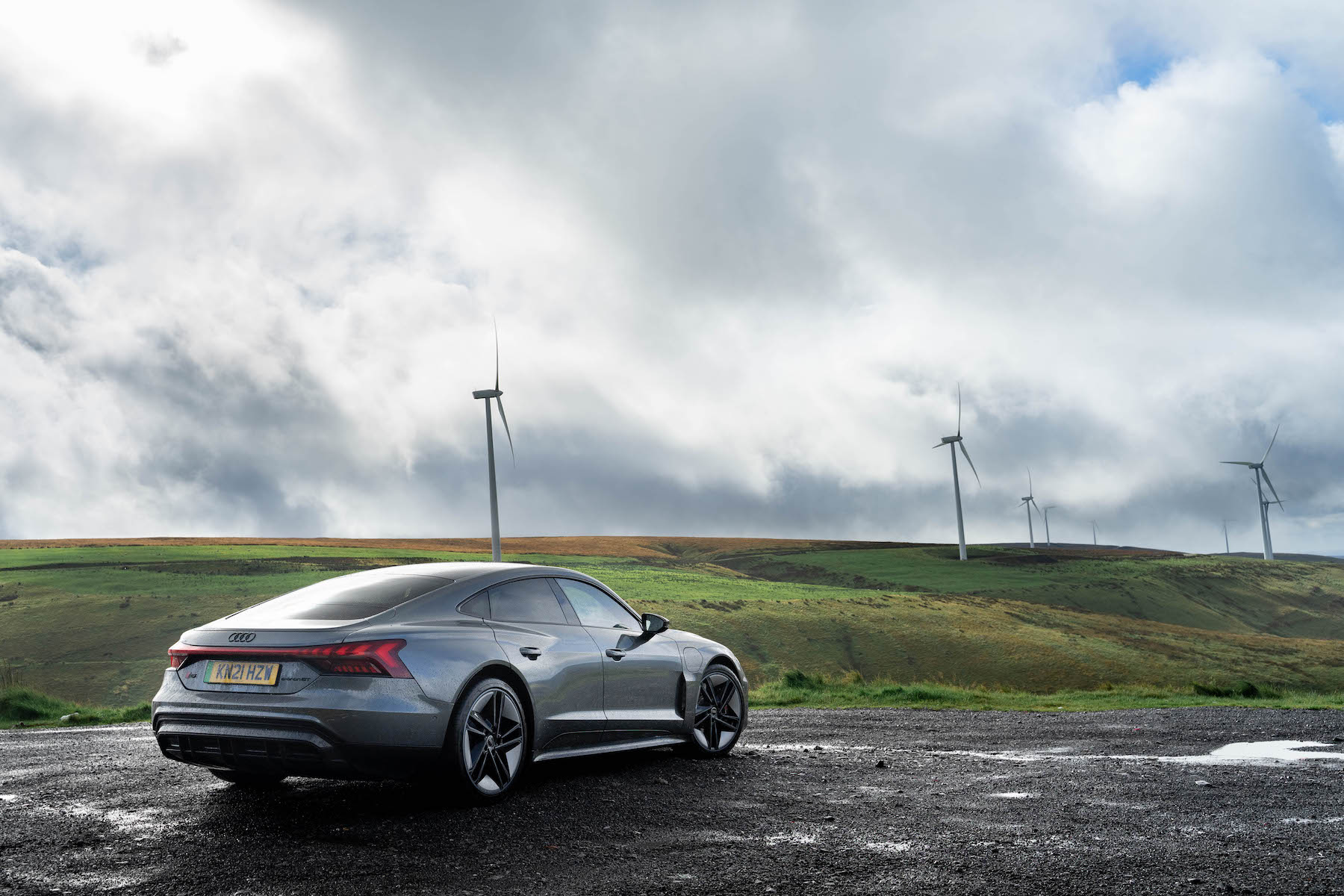Some used electric cars have lost as much as HALF of their value in under a year – but the price crash is starting to slow down.
Exclusive data shared with Car Dealer by trade price experts Cap HPI show the extent of the dramatic falls in the last year.
The Seat Mii electric has lost 50.3 per cent of its value since October 2022, the Renault Zoe is down 44.2 per cent and the Nissan Leaf has lost 42.7 per cent.
In cash terms, the used electric cars that have lost the most money include the Audi e-tron GT dropping an average of £27,629, the Mercedes Benz EQC has lost £20,275 and the Audi e-tron Sportback is down £18,929.
For comparison, over the last 12 months, petrol cars have actually risen 0.6 per cent, diesels are up 0.5 per cent, but hybrids are down 6.5 per cent and PHEVs have dropped 7.4 per cent.
While the fall in used EV prices has been well documented this year, this latest data shows the true extent of the crashes over the last 11 months – and the worst offending models.
Used electric cars began to plummet in October last year amid the cost of living crisis, shortly after Liz Truss’s disastrous mini Budget caused turbulence in the financial markets.
Prices continued to tumble as energy prices soared and negative national press coverage began to appear around queues at charging points.
In January, Tesla made the dramatic move to cut the price of its new Model 3 and Y and this accelerated the falls across the EV market as other electric car prices realigned.
The huge falls have now begun to tail off, though. In August only one electric car was on the list of used car prices that dropped the most with diesels dominating the top 10.
‘There’s definitely interest from consumers and dealers are certainly buying EVs again, but they’re being selective about what they buy and they’re not stocking many,’ Cap HPI director of valuations Derren Martin told Car Dealer.
‘There are some real EV bargains at the moment – some are cheaper than the ICE equivalents.’
Martin said the falls were down to a combination of factors including range anxiety, unfavourable press reports about long waits at chargers and rising energy prices.
He added: ‘Once the reductions started to happen, dealers, leasing companies and finance companies became risk averse and many even stopped buying completely.
‘Since the start of the summer, EV values have started to stabilise and August saw the smallest downward movement so far this year. Many models are now seeing adjustments more or less in line with other fuel-types of vehicles that sit in the same sector, rather than the big adjustments we witnessed earlier in the year.
‘In August we have seen less pressure for some of the smaller and medium EVs, and many of these models now hit an attractive price point in the retail market, encouraging wholesale buyers, albeit in small numbers.’
Cap HPI’s research shows that while Teslas dropped hard and fast at the start of the year after the manufacturer slashed new prices, their fall in value has not been the worst.
The Model 3 has lost 33.3 per cent of its value in the last 11 months and the Y has lost 30 per cent – both outside of the top 10 falls in terms of percentage and cash loss terms.
Biggest EV Price Drops – percentage

Source: Cap HPI, August 2023
- Seat Mii – down 50.3%
- Renault Zoe – down 44.2%
- Nissan Leaf – down 42.7%
- Volkswagen Up electric – down 42.5%
- Hyundai Ioniq electric – down 40.8%
- BMW i3 – down 39.9%
- Mazda MX-30 – down 39%
- Vauxhall Corsa electric – down 37.7%
- Hyundai Kona electric – down 37.6%
- Peugeot e-208 – down 37.1%
- Volkswagen ID.3 – down 36.3%
- Peugeot e-2008 – down 35.9%
- Citroen e-C4 – down 35.9%
- MG5 Electric – down 35.7%
- Fiat 500e – down 35.5%
- Vauxhall Mokka electric – down -35%
- Kia e-Niro – down 35%
- Jaguar I-Pace – down 34.4%
- Polestar 2 – down 34.3%
- Mini electric – down 33.9%
In total, the data shows that some 30 electric cars have lost more than 30 per cent of their trade value in the last 11 months.
Over the period analysed, the Peugeot Rifter electric was the best performer, losing just 1.6 per cent of its value.
Biggest EV Price Drops – cash

Source: Cap HPI, August 2023
- Audi e-tron GT -£27,629
- Mercedes EQC -£20,275
- Audi e-tron Sportback -£18,929
- Jaguar I-Pace -£18,470
- Audi Q4 e-tron £17,363
- Tesla Model Y -£17,300
- Mercedes EQE -£17,175
- Audi e-tron -£16,158
- Mercedes EQS -£15,888
- Tesla Model 3 -£15,538
- Mercedes EQA -£14,808
- Volkswagen ID.3 -£13,328
- Ford Mustang Mach-E -£13,308
- BMW i3 -£12,739
- Volkswagen ID.4 -£12,053
- BMW iX3 -£11,600
- Kia e-Niro -£11,588
- Volvo XC40 electric -£11,550
- Hyundai Kona electric -£11,388
- Audi Q4 e-tron Sportback -£11,010
One car dealer group boss – who did not want to be named – said he feared the price falls will put off many customers.
‘The biggest problem is it’s making the cost of finance very expensive for electric cars,’ said the dealer boss.
‘Future values on PCPs are poor for EVs and that’s pushing the price of the finance up at the same time as interest rates are rising.
‘People are watching what they spend very carefully and buying a new EV looks pricey at the moment. The market needs some real incentives to get it going – a plug-in car grant again or similar.’
The dealer boss said the fall in EV values was also resulting in some very difficult conversations with people coming to the end of their finance deals.
‘They have nothing left in them and in a lot of cases the guaranteed values they were given at the start of the deal are way off and any equity has evaporated,’ he added.
Auto Trader said it believed the issue has been caused by a large number of electric cars hitting the market at once.
Richard Walker, data & insights director, said: ‘Although EV values are still contracting, it’s important to put it into the right context. The electric market is still an immature one, and what we’re seeing is a natural and expected correction in the wake of a massive influx of stock over recent months.
‘It may be some time before the market reaches a complete equilibrium, but we are seeing clear signs of prices stabilising and some very attractive savings for car buyers.
‘It means that for retailers who are able to follow the data, and source the right electric stock for their forecourt, there’s some very strong profit potential out there.’
Last week, leading listed car dealer group Vertu said supply of new electric cars was ‘exceeding retail demand’.



































